Participants will learn about spectroscopy and the significance of spectra in understanding light and matter. They will observe how different light sources such as natural light, LEDs, and oil lamp produce different types of spectra—continuous, line, or band—revealing the unique “fingerprints” of each source. By constructing their own spectroscope from waste materials like cardboard and old CDs, students will not only practice sustainable innovation but also connect with the fundamental ideas of quantum physics, such as quantized energy levels and discrete photon emissions. This activity combines hands-on creativity with scientific discovery, showing how everyday materials can demonstrate the invisible quantum world.
CD (used or blank) – acts as a diffraction grating
Cardboard tube or small cuboid box – serves as the body of the spectroscope
Black card sheet – for making the slit and blocking extra light
Scissors – for cutting paper and cardboard
Blade cutter – for making precise slits (to be handled by teacher or under supervision)
Pencil – for marking measurements and cutting lines
Colored or plain paper – for marking and to cover the spectroscope
Adhesive tape / masking tape – to stick materials and block any unwanted holes
Differentiate between types of spectra (continuous, line, and band) by observing various light sources.
Construct a working spectroscope from waste materials, applying creativity and eco-friendly practices.
Explain the link between spectra and quantum physics, especially the concept of quantized energy levels and photon emission.
Analyze and record observations systematically, developing scientific inquiry and critical thinking skills.
Appreciate sustainability in science by reusing discarded materials (CD, cardboard) for a meaningful experiment.
Quantum physics is a very interesting and rapidly emerging subject. Students are naturally curious about it, and through this activity they will not only understand how photons of specific colors are released, but also learn to build a simple instrument to observe and measure spectra — even detecting the presence of specific color photons. The materials used are almost free, which will inspire students to think creatively about designing scientific experiments or educational toys using waste, easily available, or eco-friendly materials.
Take a blank paper and put CD on it.Take a pencil and draw a small curve by tracing the CD curve
How much curve we will draw that much portion of CD will be inserted inside the box
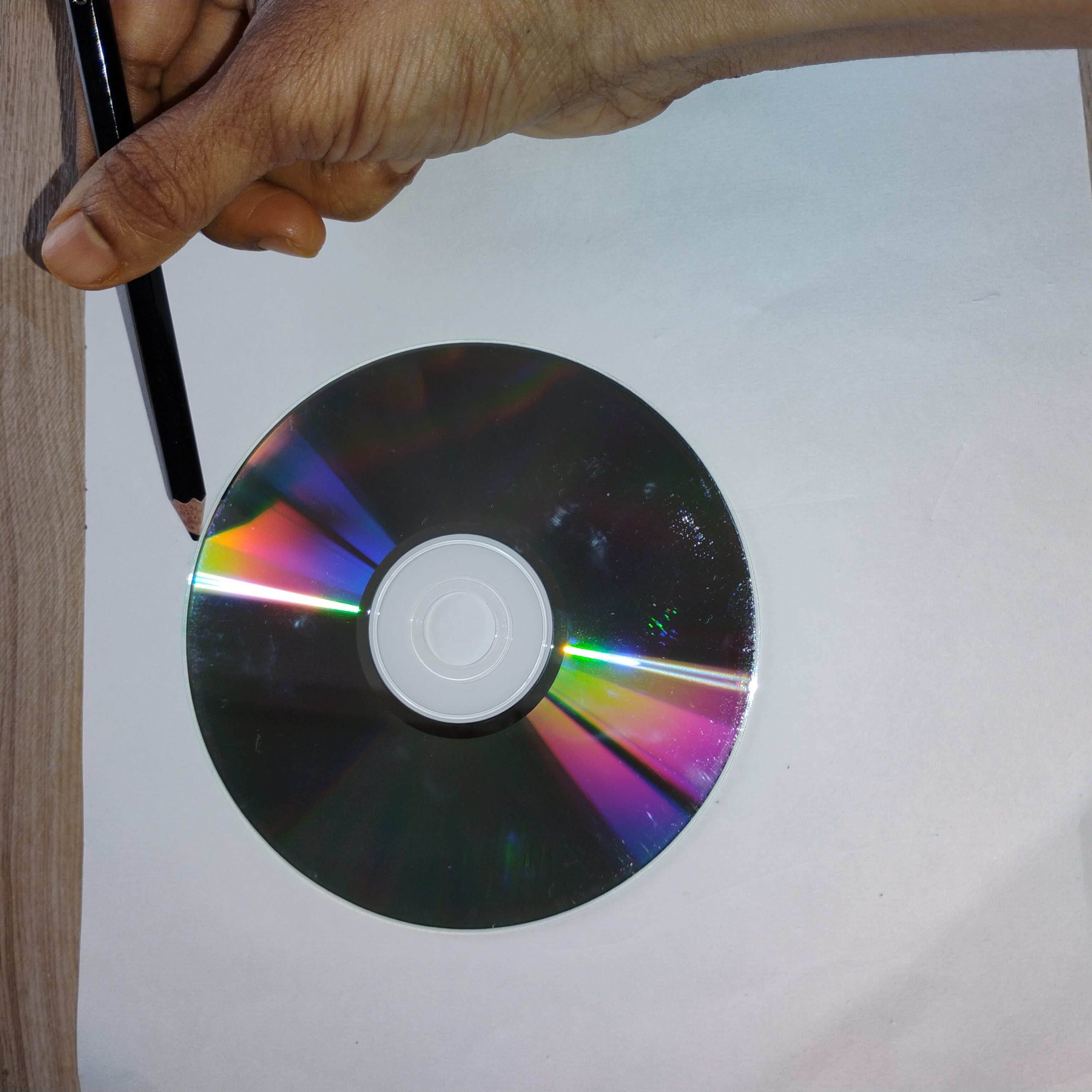
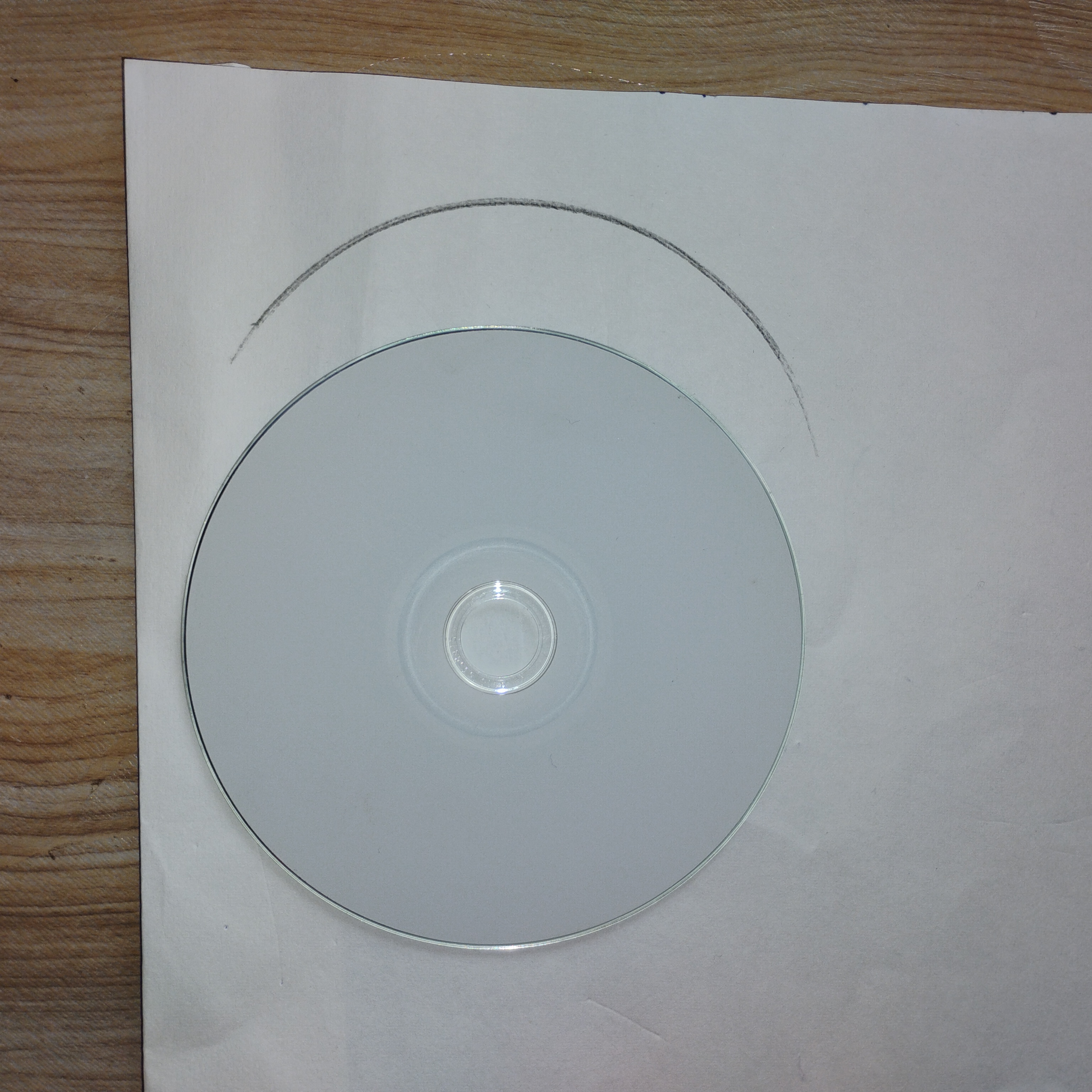
Now put the paper on the surface of box and fold paper as per the shape of box. Use tape to fix the paper on box surface
Make sure that curve cutting is there at the bottom side of box.
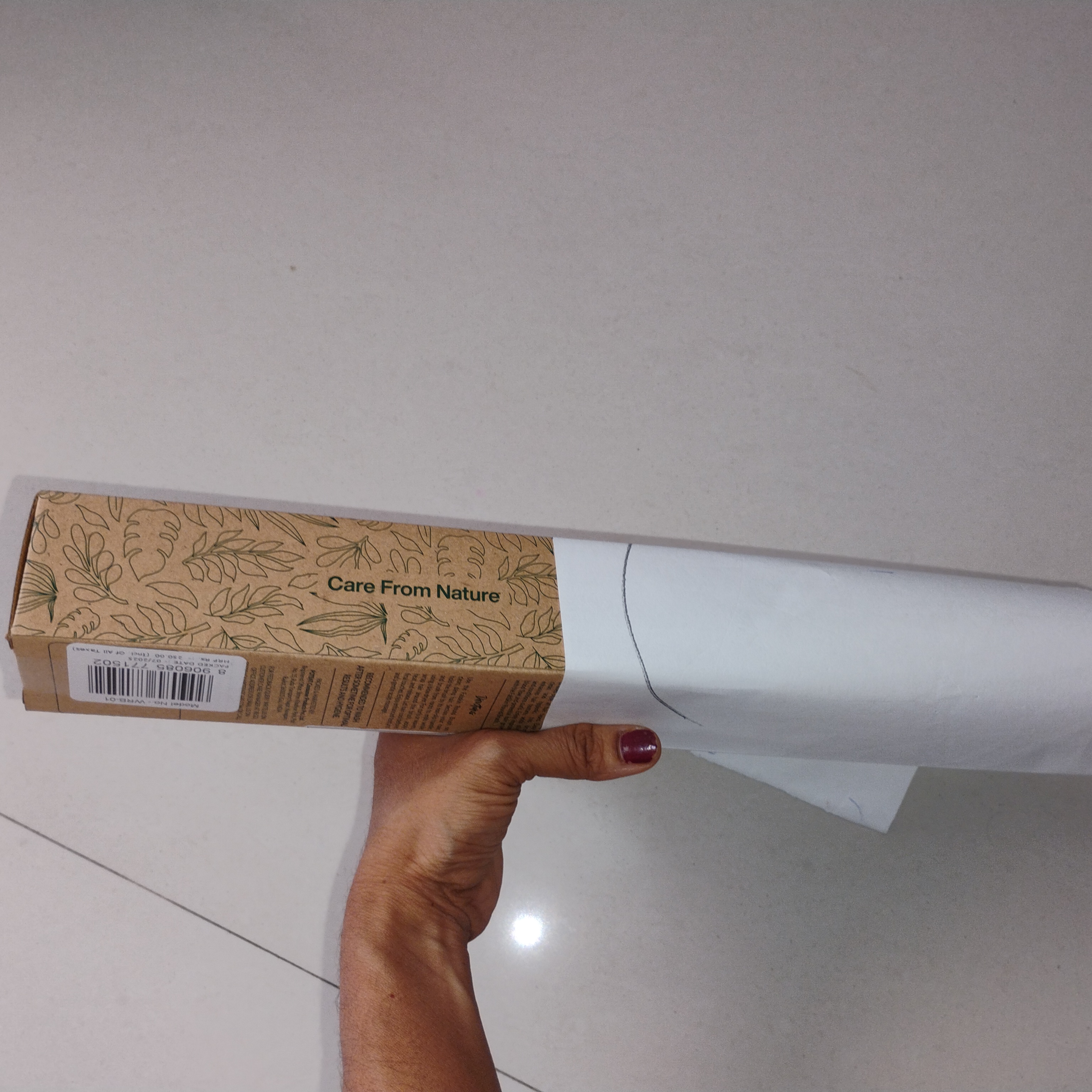
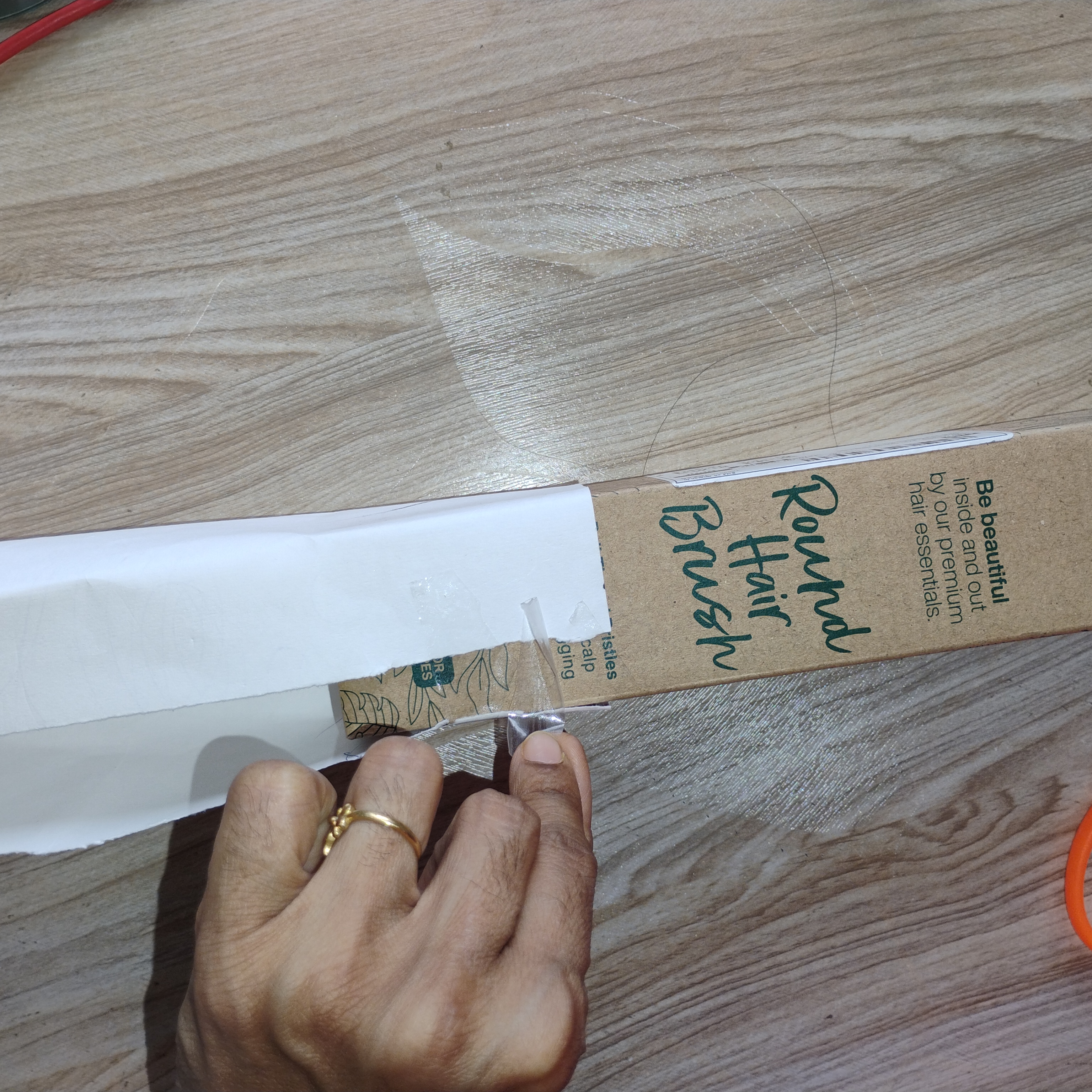
Cut the box with cutter as per trace. Remove the paper after curve cutting Insert the CD throgh that curved cutting
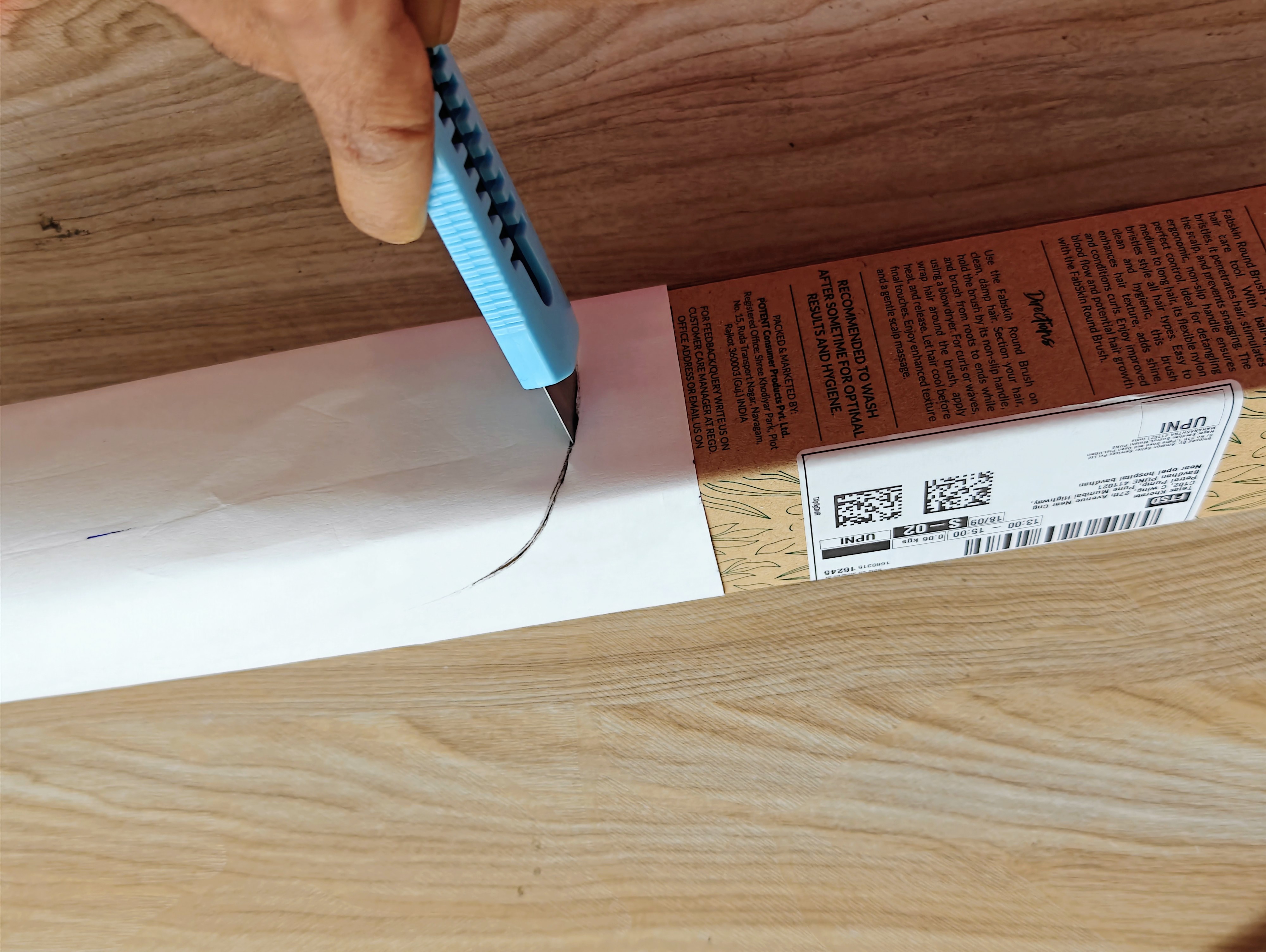
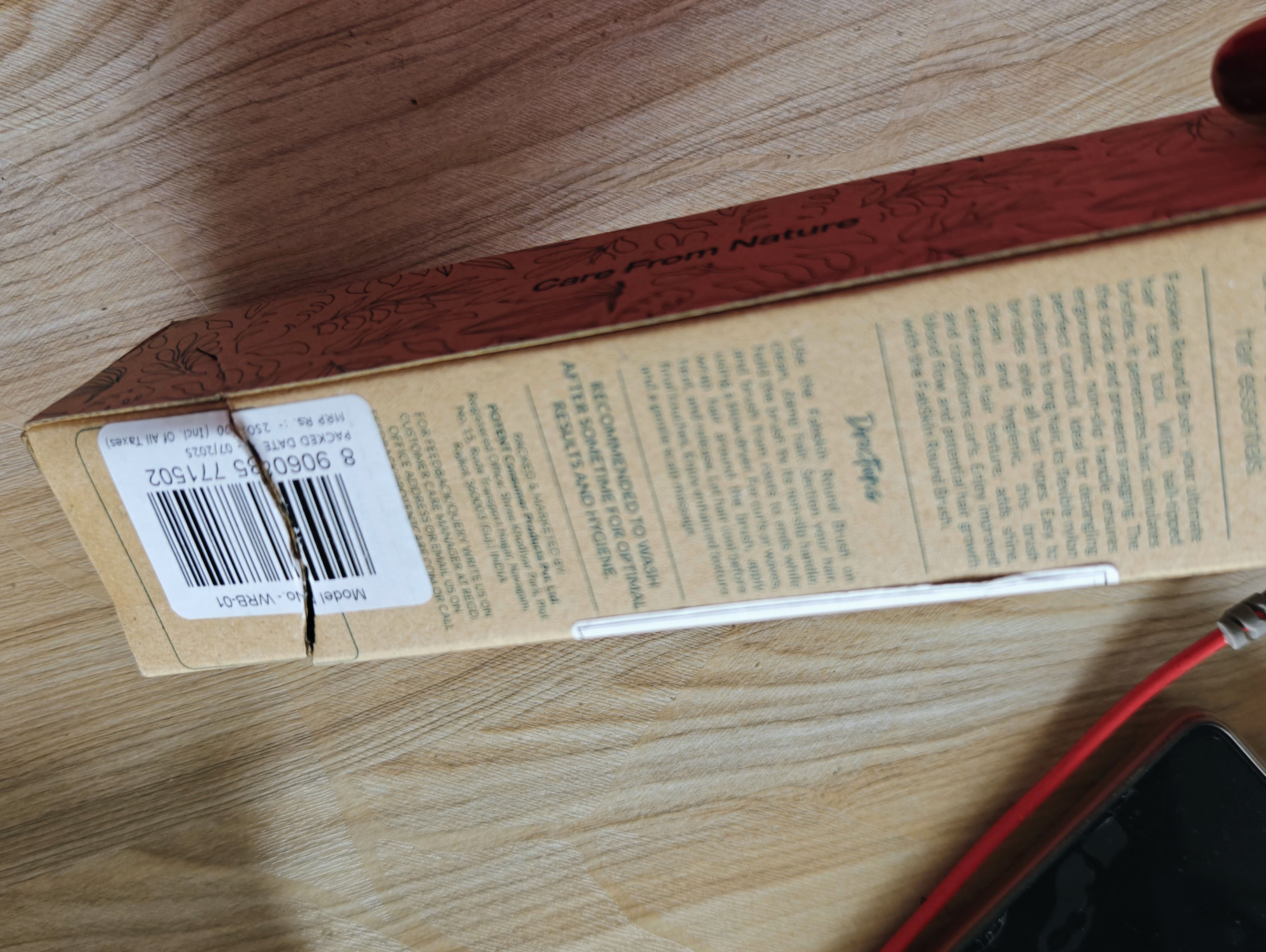
Now cut the small rectangle on opposite side ot the surface from where CD is inserted.
Make sure that hole should be at the suitable place from where spectrum which we will be getting on surface of the CD will be visible.
Cut a small rectangular hole on the top side of the cardboard box . Using a blade cutter, carefully make a narrow vertical slit (about 1 mm wide) in the center of the black card. This slit will act as the light entry point for the spectroscope. Cover the top side of box with a piece of black card sheet.
Put insulation tape or use paper to close all holes on the box from where the light is coming unnecessarily. Ex.- surface from where CD is inserted Put name on the paper and stick it on the surface of the cardboard box
We want light to fall only from thin slit. Close everything other than slit.

Now hold the slit surface towards the source of light and observe from the hole.
Now note the observation for different sources By using different light sources, participants will see continuous vs line vs band spectra, and thus visually appreciate quantization. They will connect color bands to photon wavelength & energy. The act of constructing from simple materials also helps reinforce that quantum physics is not just abstract—it shows up in everyday light you see.
Natural White ,LED White, LED Yellow
LED Green, LED Purple, LED Blue
Having trouble? Let us know by completing the form below. We'll do our best to get your issues resolved quickly.
"*" indicates required fields